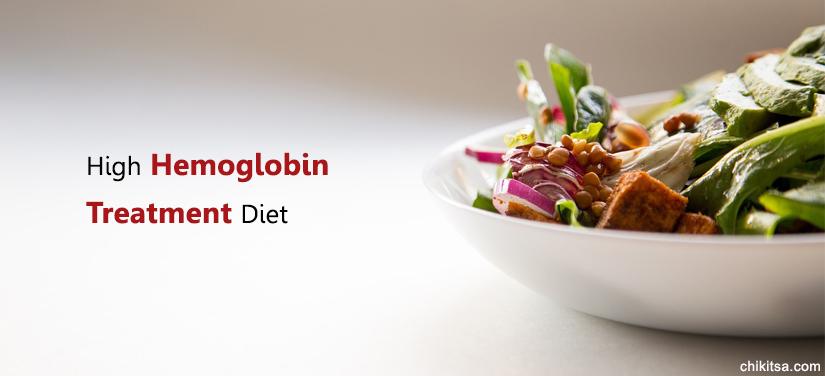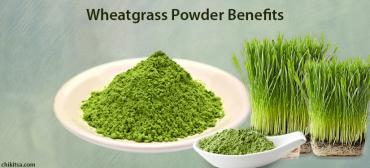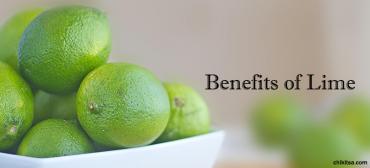High Hemoglobin Symptoms, Causes And Treatment Diet

We have often come across case having low hemoglobin since anemia, especially iron deficiency anemia is a global health issue. One would rarely see a patient having high hemoglobin levels. High hemoglobin level also is associated with some serious health problems which need special attention and often a high haemoglobin diet treatment too.
Hemoglobin is formed when a protein “Globin†is combined with a non-protein substance called “Hemeâ€. Red blood cells receive their red color because of the presence of hemoglobin. Iron is an essential mineral for the formation of hemoglobin. It is often a misconception to consider high hemoglobin levels as adequate. High hemoglobin has no co-relation with the levels of iron and red blood cells in blood. Very often, patients with high hemoglobin levels have normal red blood cell count.
Normal Levels For Hemoglobin
In males: 14 – 17 mg/dL
In females: 12 – 14 mg/dL
Normal Range Varies in Newborns According to their Age
Any hemoglobin reading above the upper limit of the normal range mentioned is considered to be high. Another blood parameter in a complete blood count test will show is Hematocrit value. Hematocrit means the percentage of red blood cells present in a given sample of blood. Hematocrit values are raised in presence of high hemoglobin levels.
Background for High Hemoglobin Levels
- When the hemoglobin is abnormally high, there is an increase in viscosity of blood.
- Increased viscosity, just like anemia causes reduced oxygen supply to organs and tissues.
- An additional risk of thromboembolism (clotting of blood within the blood vessels) is also present with increased blood viscosity.
- Although high hemoglobin is not associated with any significant mortality, it definitely points to serious disorders of blood which need to be paid attention to.
- A latest study conducted shows a positive association between high hemoglobin levels and high blood pressure. The reason for this was found to be increased viscosity of blood.
- In several patients, a history of prolonged consumption of iron supplements needs to be elicited.
- Certain studies have also found high hemoglobin levels in patients with chronic renal failure or severe renal impairment who were on Erythropoietin Stimulating Agents (ESAs).
- High hemoglobin levels in pregnant women are associated with higher incidences of still-births. This means that both high and low levels of hemoglobin during pregnancy are undesirable.
Causes For High Hemoglobin
Two main mechanisms responsible for high hemoglobin levels are
- Increase in red blood cell production to meet tissue demands for oxygen.
- Reduced or impaired destruction of red blood cells.
- Reduced plasma volume resulting in higher concentration of red blood cells.
Non-pathological Reasons For High Hemoglobin
- Persons living at high altitudes have chronically high hemoglobin levels.
- Cigarette smoking – causes smoker’s polycythemia. Raised hemoglobin and red blood cell values due to increased oxygen demands due to increased levels of impure (deoxygenated) blood.
- Exposure to high levels of carbon monoxide frequently as from stoves, garage, vehicular emissions or furnaces.
Drugs Causing High Hemoglobin Levels
- Erythropoietin Stimulating Agents.
- Prolonged iron supplementation.
Disease Conditions Which Rarely Cause High Hemoglobin Levels
- Chronic Obstructive Pulmonary Disease (COPD) and other restrictive lung diseases
- Heart failure
- Liver cancer
- Cancer if kidneys
- Dehydration from excessive blood loss, diarrhea or vomiting or starvation.
- A defect in red blood cell production is polycythemia.
Polycythemia Vera
Since a lot is being spoken about high hemoglobin levels in relation to red blood cells. It would be worthwhile to focus on a specific disease condition of the bone marrow which causes an abnormal and increased production of red blood cells.
- Primary Polycythemia – Occurs due to inherent or genetic causes. It does not occur due to or in association with any other disease condition. Excessive red blood cell production due to hereditary factors is called polycythemia vera.
- Secondary Polycythemia – This is due to clinical conditions like lung, liver and kidney diseases or tumors.
- Relative Polycythemia – Occurs due to plasma loss as from excessive sweating, diarrhea, vomiting or burns.
- Pseudoplycythemia – Due to an increased level of stress among middle-aged individuals.
- Polycythemia is a rare blood disorder
High Hemoglobin Signs and Symptoms
Signs and symptoms of high hemoglobin levels are vague and rarely point to a definitive diagnosis.
- Weakness and fatigue
- Flushing or face
- Frequent headaches
- Visual disturbances
- Excessive itching
- Unexplained bruising
- Body ache and joint pain
- Abdominal pain or discomfort.
- Redness and painful palms and soles.
- Secondary polycythemia will show corresponding signs and symptoms.
If you happen to find an abnormally high hemoglobin level along with these signs and symptoms, it is advisable to visit your physician at the earliest. You may need to run a few more tests to confirm the diagnosis of polycythemia due to hereditary causes or otherwise. Other investigations like a chest x-ray, electrocardiogram (ECG), 2D echo and an ultrasound may be required to understand if some major organs are being affected.
Your clinician will also be able to advise you regarding high hemoglobin treatment diet so that you can use those methods as an adjunct to standard treatment protocols. This is because following a suitable diet is as important as undergoing regular treatment.
High Hemoglobin Diet Treatment
The main treatment protocol followed in maximum as well as severely high hemoglobin levels is phlebotomy or bloodletting. Blood thinning agents are also frequently used to prevent blood from clotting within the blood vessels. Treatment for low hemoglobin is fairly popular and well known among both urban and rural population; whereas very less light is thrown on high hemoglobin treatment diet.
Certain home remedies and basic diet and regimen can be considered an effective high hemoglobin treatment diet. These include
- Hydration – Maintain adequate hydration by drinking plenty of water. Water intake restriction may need to be followed by patients having chronic renal failure.
- Iron supplements – Speak to your health-care professional regarding discontinuation of iron supplementation.
- Curb – Cigarette smoking and alcohol.
- Intake of minerals - Trace elements like zinc, copper and selenium are important in maintaining a normal hemoglobin level. Intake of fresh fruits and vegetables is advised for this purpose.
- Avoid – Cooking in iron vessels. Avoid iron fortified food like cereals and grains. Avoid food rich in iron like jaggery, raisins and red meat.
- Breathing exercises – Seek respiratory exercises training if you have lung diseases.
- Grapefruit – A recent study showed that eating grapefruit regularly decreased the hematocrit count.
- Anti-oxidants – These help to clear out free radicals from the blood.
- Regular exercise – It is a primary go-to advice for any kind of illness. Exercise immediately releases endorphins and adrenalin which brings about a sensation of well being. Regular exercising also keeps the body and the mind healthy.
- Blood Donation – Blood can be donated if you do not have any other additional blood disorders or serious illnesses.
Before getting to a diagnosis and treating high hemoglobin, it is essential to confirm these measures with your treating clinician. Treating the cause is equally essential along with this high hemoglobin treatment diet.









